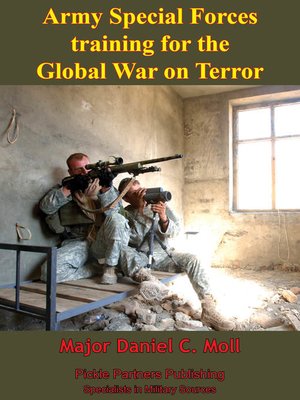
Sign up to save your library
With an OverDrive account, you can save your favorite libraries for at-a-glance information about availability. Find out more about OverDrive accounts.
Find this title in Libby, the library reading app by OverDrive.



Search for a digital library with this title
Title found at these libraries:
| Library Name | Distance |
|---|---|
| Loading... |
With USSOCOM assuming the role as supported command in the Global War on Terror, Army Special Forces will no doubt to play a primary role in that effort. The unspoken assumption seems to be that America's new, unconventional foe will best be combated with America's own unconventional warriors. It is unclear, however, if a force raised to conduct behind-the-lines operations against a large conventional enemy will remain the force of choice against al-Qaida and similar threats. This thesis' central research question is: Is US Army Special Forces adequately prepared, and trained to fight the Global War on Terror? This thesis examines the contemporary operating environment, the threat represented by al-Qaida, and whether it represents a traditional terrorist threat or a new, transnational insurgency. A review of both types of organization over the last century indicates that al-Qaida is, at this stage, merely a terrorist organization, and not an insurgency. However, al-Qaida sprang from a region that is ripe for insurgency should the terrorists choose to become more than what they currently are. Combating the threat posed by al-Qaida, then, seems to require both an aggressive counter-terrorist campaign and a simultaneous pre-emptive counter-insurgency. A review of current training indicates that Special Forces appears well prepared for both efforts with one glaring deficiency: foreign language proficiency.







